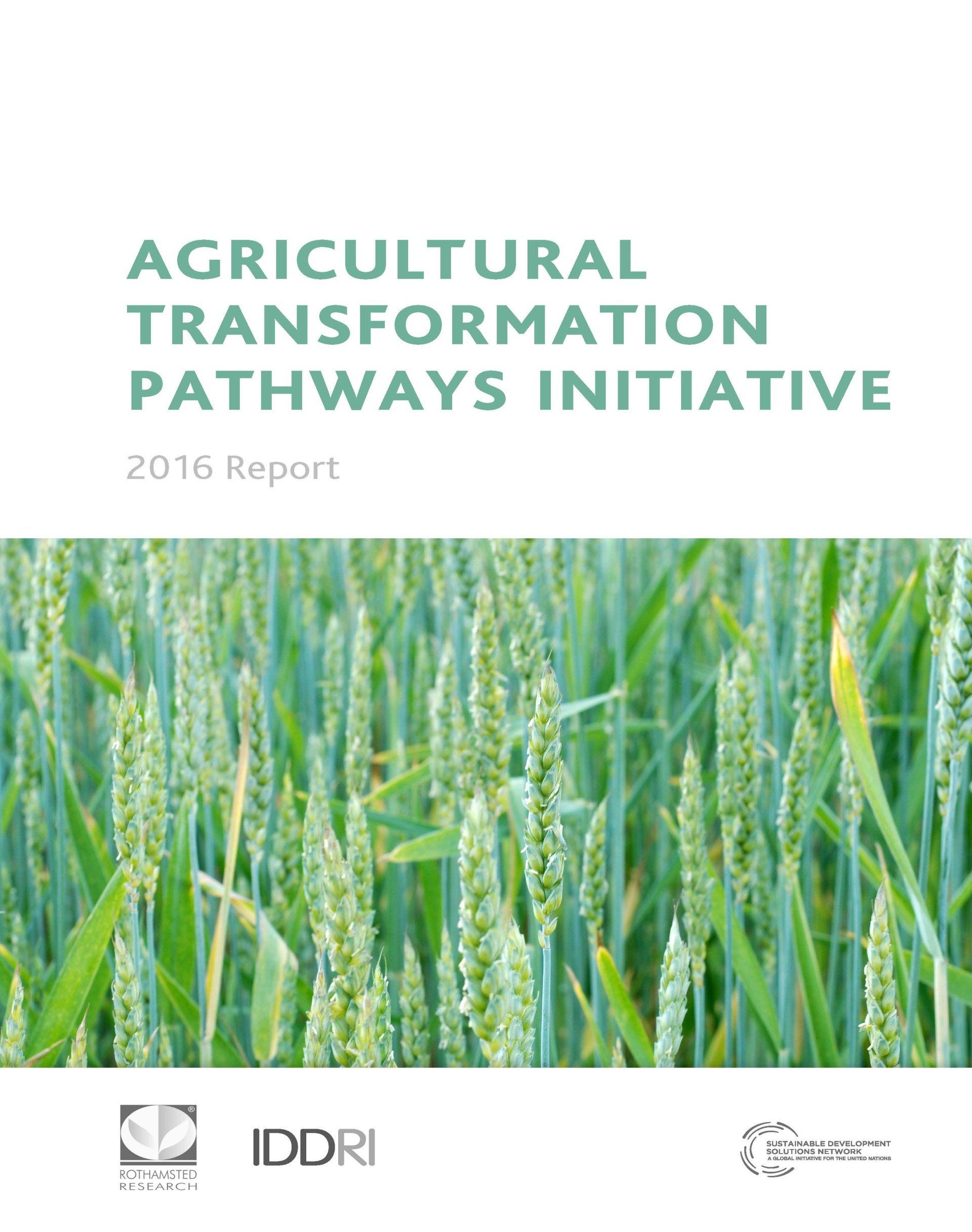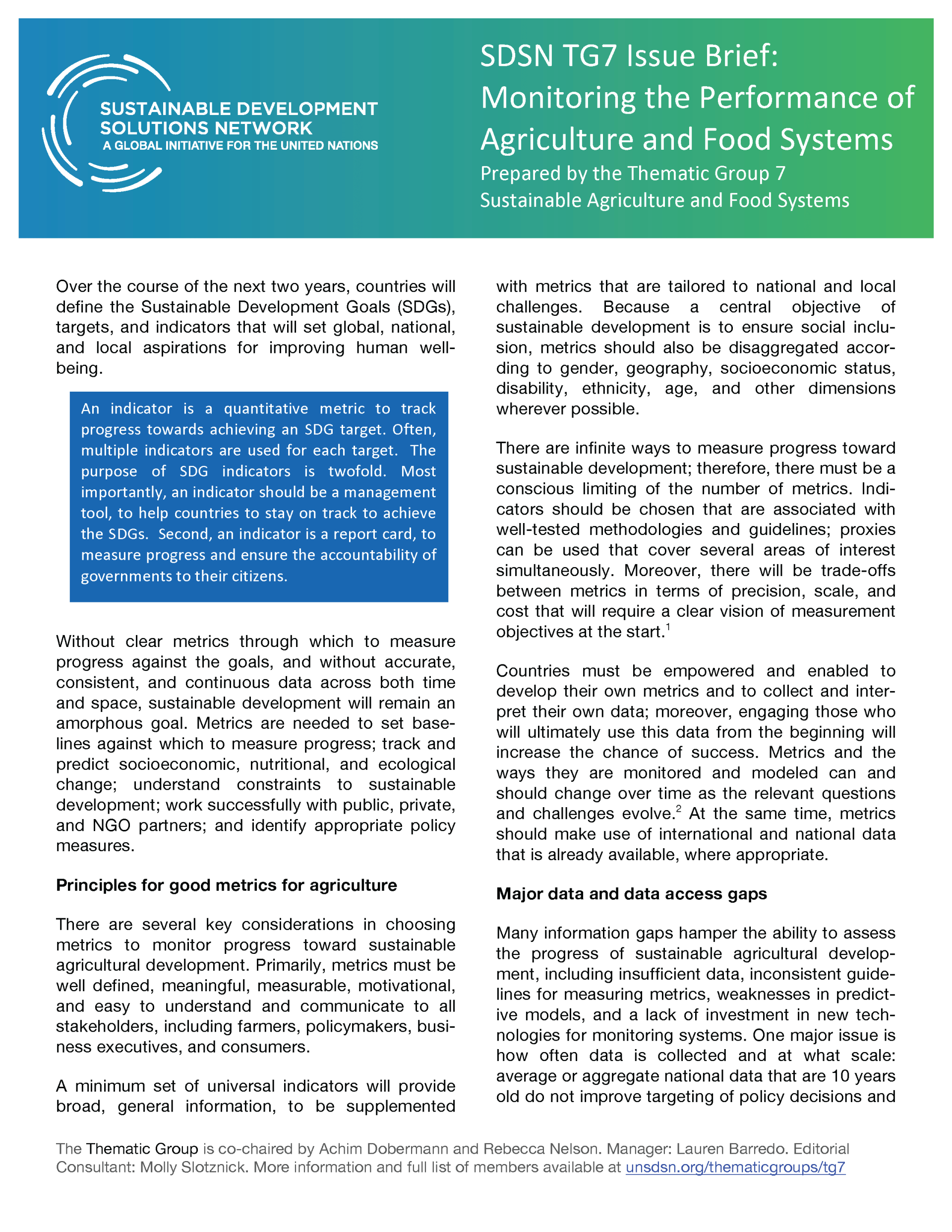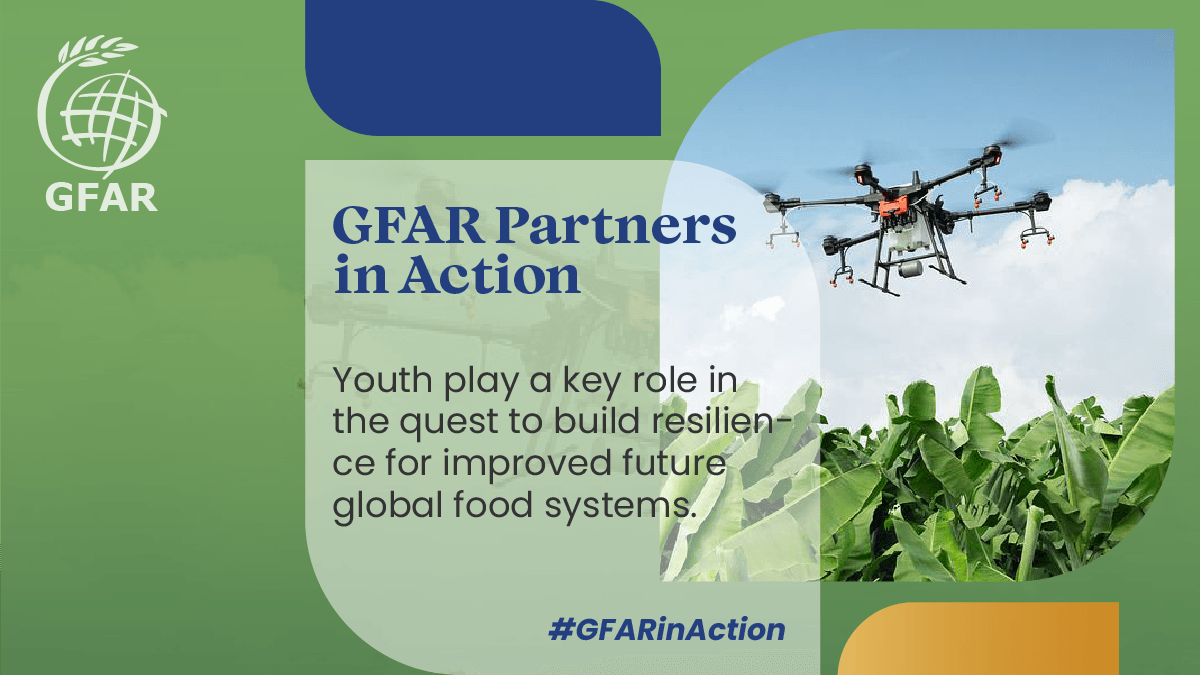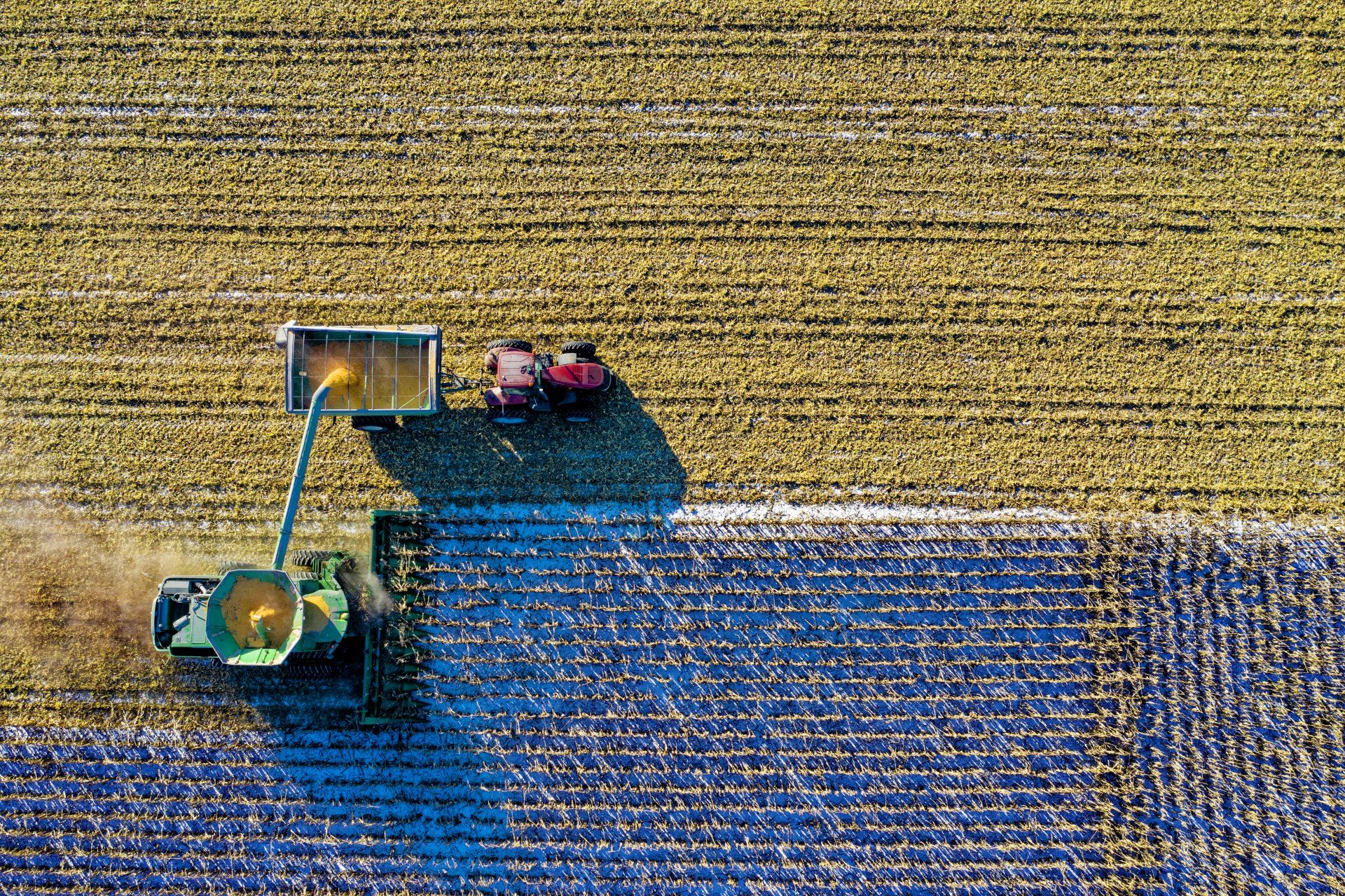SUSTAINABLE AGRICULTURE & FOOD SYSTEMS
THEMATIC NETWORK ON SUSTAINABLE AGRICULTURE & FOOD SYSTEMS
Thematic Network on Sustainable Agriculture and Food Systems
The global agriculture and food system in its current form is unsustainable across all three pillars of sustainable development. This Network seeks to promote major shifts at all scales – international, national and sub-national – and in all sectors, from food production to consumption, to achieve the SDGs related to poverty, food and nutrition security, health, rural development, and the environment. We accomplish this through publications and synthesis reports, and events and webinars to raise awareness, disseminate good practice, and promote solutions.
Featured Video
RECENT PUBLICATIONS
May 29, 2016
Agricultural Transformation Pathways Initiative 2016 Report
This report describes the work of the Agricultural Transformation Pathways initiative, or ATPi, including the methodology of the project and national pathways for Uruguay, China, and the United Kingdom.
The global agriculture and food system in its current form is unsustainable across all three pillars of sustainable development. Major shifts at all scales – international, national and sub-national – and in all sectors, from food production to consumption, are essential to improve the situation and achieve the SDGs related to poverty, food and nutrition security, health, rural development and the environment.
Most countries lack clear pathways for making ambitious transformative changes in their agriculture and food systems to ensure they become environmentally, economically and socially more sustainable. The ATPi has developed an internationally-coordinated approach and toolkit based on backcasting and other modeling techniques as well as institutional and policy analysis methods, including practical application in selected countries, with results summarized in this publication.
January 10, 2014
SDSN Issue Brief: Monitoring the Performance of Agriculture and Food Systems
This document describes what is needed for a data revolution for agriculture.
MASSIVE ONLINE OPEN COURSE (MOOC)
Feeding a Hungry Planet
This course is self-paced – you can enroll immediately and complete the course materials at any time before August 31, 2023.
Agriculture is more than waving fields of wheat; our ability to grow food from existing natural resources – and without decimating those resources – is key to sustainably feeding the world.
In this 7-module massive open online course (MOOC), learn about food security worldwide, the effects of malnutrition, how we manage ecosystems that provide food resources, and more. You’ll emerge from this course with a clear answer to the question: What can I do to make food consumption and production more sustainable?
RECENT WORK
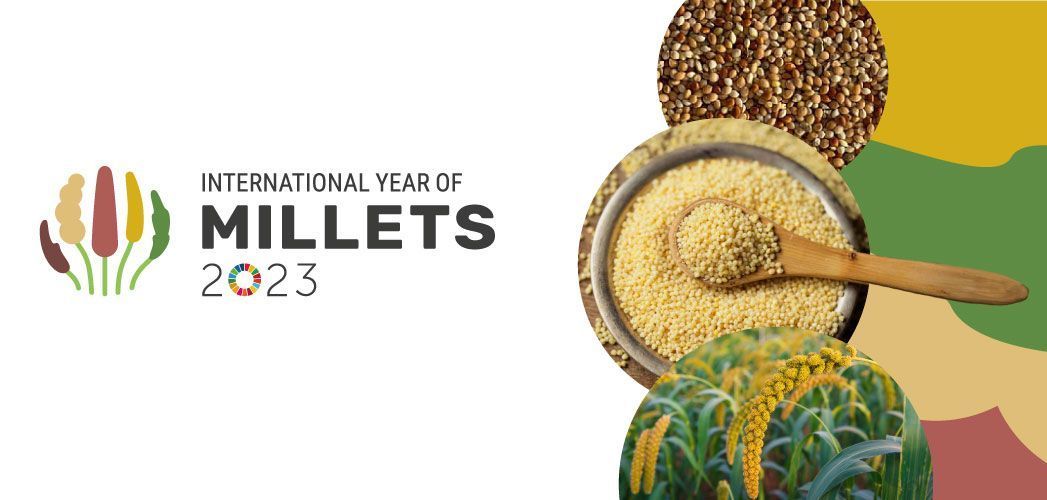
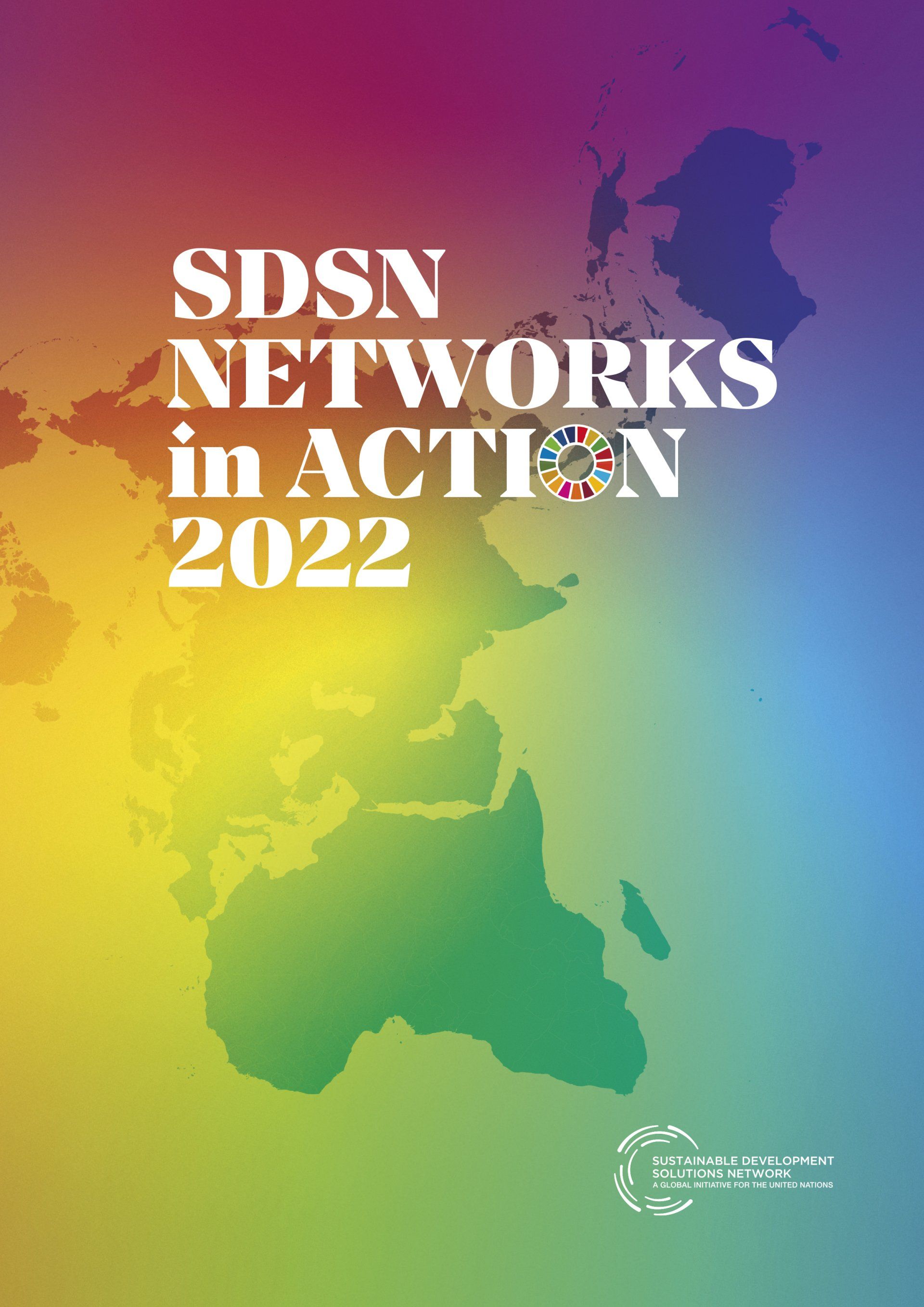
TEAM
Contact Lauren Barredo for information on how to get involved with this network.
Sign Up for SDSN Updates
Get our latest insights, opportunities to engage with our networks, and more.
SDSN mobilizes global scientific and technological expertise to promote practical solutions for sustainable development, including the implementation of the Sustainable Development Goals (SDGs) and the Paris Climate Agreement.
Paris
19 rue Bergère
75009 Paris
France
+33 (0) 1 84 86 06 60
New York
475 Riverside Drive
Suite 530
New York NY 10115 USA
+1 (212) 870-3920
Kuala Lumpur
Sunway University
Sunway City Kuala Lumpur
5 Jalan Universiti
Selangor 47500
Malaysia
+60 (3) 7491-8622

